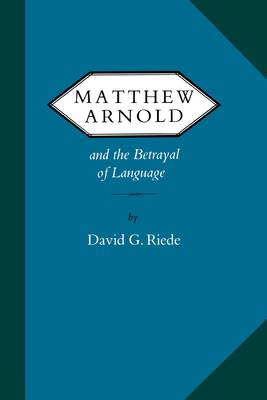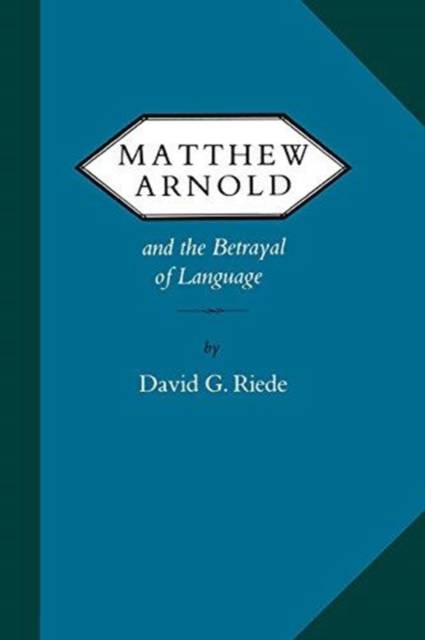
- Afhalen na 1 uur in een winkel met voorraad
- Gratis thuislevering in België vanaf € 30
- Ruim aanbod met 7 miljoen producten
- Afhalen na 1 uur in een winkel met voorraad
- Gratis thuislevering in België vanaf € 30
- Ruim aanbod met 7 miljoen producten
Zoeken
Omschrijving
Matthew Arnold was one of the nineteenth century's greatest spokesmen for the saving power of culture, especially of poetry, to substitute for a vanishing religion. Yet he was persistently troubled throughout his career by the difficulty of finding adequate authority in language. Matthew Arnold and the Betrayal of Language explores Arnold's attempts to find an authoritative language, and argues that his occasional claims for such a language reveal more uneasiness than confidence in the value of ""letters."" It examines Arnold's poetry within this context and demonstrates that his various experiments-- to speak in oracular voice, to use classic forms, to achieve a grand style-- and their failures, reflect the inevitable difficulties facing any poet in an age of intellectual and cultural upheaval. Riede argues that Arnold's determined efforts to write with authority, combined with his deep-seated suspicion of his medium, result in an exciting if often agonized tension in his poetic language-- a language that strains against its inevitable but generally unacknowledged limitations.
Specificaties
Betrokkenen
- Auteur(s):
- Uitgeverij:
Inhoud
- Aantal bladzijden:
- 254
- Taal:
- Engels
- Reeks:
Eigenschappen
- Productcode (EAN):
- 9780813935805
- Verschijningsdatum:
- 17/05/2015
- Uitvoering:
- Paperback
- Formaat:
- Trade paperback (VS)
- Afmetingen:
- 152 mm x 229 mm
- Gewicht:
- 312 g

Alleen bij Standaard Boekhandel
+ 137 punten op je klantenkaart van Standaard Boekhandel
Beoordelingen
We publiceren alleen reviews die voldoen aan de voorwaarden voor reviews. Bekijk onze voorwaarden voor reviews.







